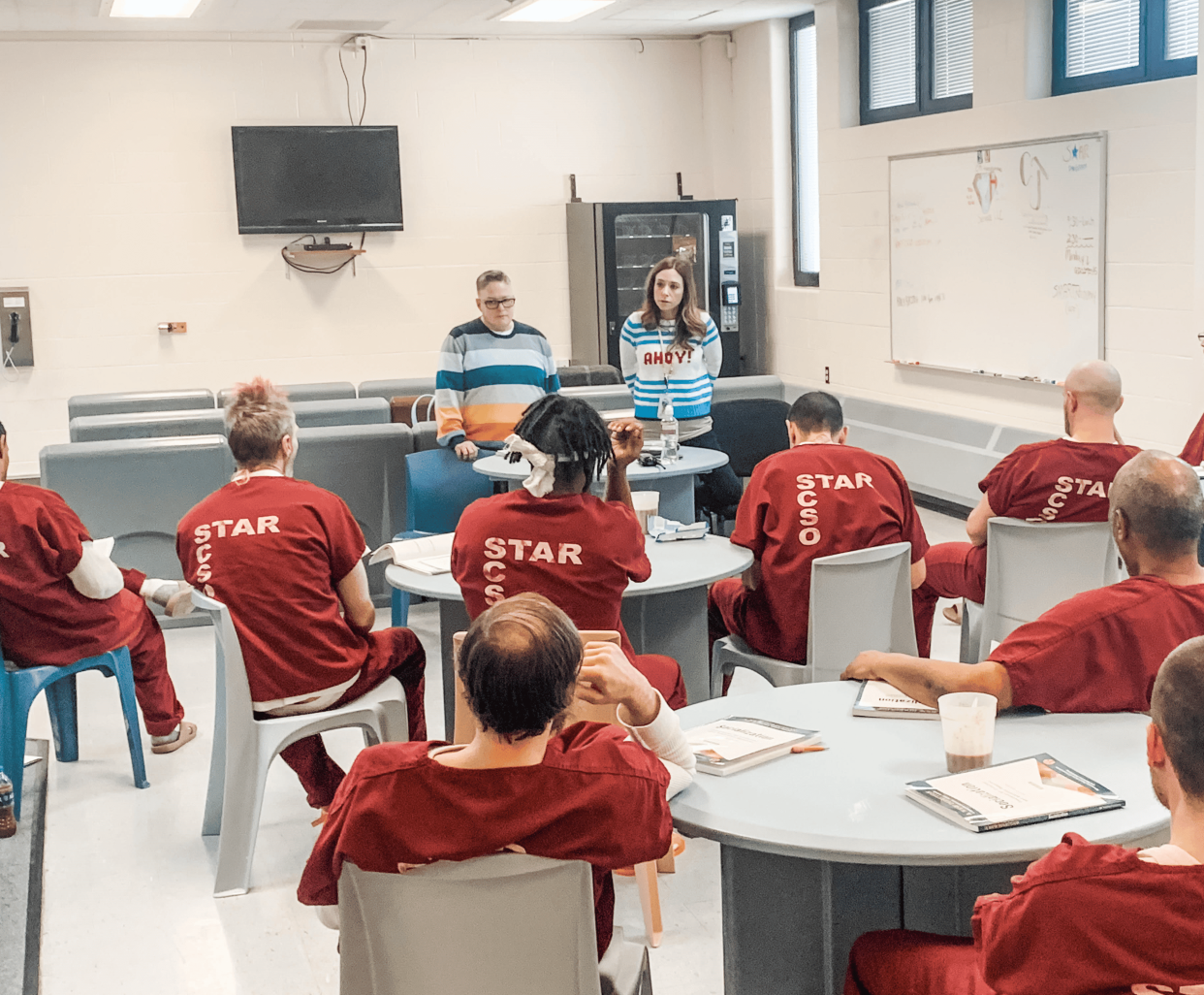The Stark Adult Recovery Program works to reduce recidivism

According to the latest report available from the Bureau of Justice Statistics published in June 2021, 17% of state prisoners and 18% of federal inmates in 2004 indicated they committed their current offense to obtain money for drugs.
Additionally, in 1995 the first national survey of adults on probation reported that nearly 70% of probationers reported past drug use with 32% noting they were using illegal drugs in the month before their offense.
Then, Stark County fell victim to the heroin epidemic that also plagued other communities across the state and across the country. The consequences of the nation’s opioid crisis, one can assume, have continued to ripple through many aspects of society over the last nearly two decades.
Reducing violent crime:'We needed to do something.' Stark sheriff looks to reduce violent crime with task force
This, in turn, is likely to generate an influx in the number of jail and prison inmates arrested for drug-related offenses or for crimes due in-part to addiction. Not immune to these consequences has been our criminal justice system. According to a PBS.com report published in December 2022, it is now estimated that up to 65% of the U.S. prison population has some sort of active substance use disorder.

Our county jails have been forced to evolve to meet an overarching goal to reduce recidivism. Evidence continues to tell us that addiction is a disease and that an individual caught in the trenches of addiction will continue to return unless adequate help and support is provided.
Evidence also tells us that those facing substance abuse issues often find themselves leading a life of crime that lands them behind bars time and time again. With the priority of protecting innocent community members, we must evaluate all encompassing services behind bars to ensure these offenders have the opportunity to climb out of the trenches and to choose a different path.
This not only benefits these people directly by providing the tools necessary for them to build a better life, but it directly impacts the communities around them.
“What we cannot do is nothing,” explained Stark County Sheriff George Maier. “As Albert Einstein described, ‘Insanity is doing the same thing over and over and expecting different results.’ It is time that we do something different to achieve sustainable change that serves those we are sworn to protect.”
The rotating door of addiction, crime, and jail can seem paralyzing as if impactful progress continues to elude us. One step forward and two steps back, as some may describe. Unless we meet the struggling where they are.
Addressing only the crime that was committed is not working and we must now challenge ourselves to address the reasons the crimes were committed. This strategic approach to rehabilitation paves the way for us to, in many cases, comprehensively address the problem at hand.
For an addict, crime is the solution where addiction is the real problem. And, furthermore, addiction is often the solution where a host of other triggers are truly responsible. The general misconception may be that after someone ‘does the time for their crime,’ they are fully rehabilitated; however, this is simply not always the case.
What is the Stark Adult Recovery program?
The Stark Adult Recovery (STAR) program is a certified recovery program that is operated within the Stark County Jail and has viable potential to put an end to this domino-like pattern.
Launched on March 27, 2022, the STAR program is designed to be all encompassing with a priority focus on the cause of someone’s addiction. STAR staff are licensed counselors who assess a participant’s readiness to change, develop individualized treatment plans, and elicit behavior change.
Program participants are court ordered to attend the STAR program within the Stark County Jail as part of sentencing. Individuals must meet jail classification requirements, such as being nonviolent offenders, to be accepted and they are mandated to comply with enforced jail rules throughout the program.
According to the National Library of Medicine, the goal of addiction rehabilitation is to place individuals in the least restrictive environment that is still safe and effective for them to move throughout the continuum of care as they demonstrate the capacity and motivation to cooperate with treatment and no longer need a more structured setting or the types of services offered only in that environment.
The STAR program was designed with a holistic treatment approach in mind. In 2021, Sheriff Maier initiated the redesign of the jail to include softer colors, an enhanced meal plan, safe and comfortable furnishings, elective weekend programming, a resource library, and washer and dryer facilities within the housing area in addition to other accommodations.
Upon graduation of the 30-day program, each person departs with an individualized discharge plan that includes the length and type of aftercare determined by licensed behavioral health professionals.
An element of the program release includes connecting graduates with services within their communities to ensure success and continuity of their care.
These are not simply connections initiated upon release, but rather relationships with organizations, agencies, and people that have been established throughout the course of the in-patient program.
Program participants attend a monthly resource fair within the jail in which community partners meet with them one-on-one to discuss their needs, concerns, etc. to aid in the success of their rehabilitation upon release. These connections include job opportunities, housing, and even family support programs.
Monday marks the one-year anniversary of the STAR program within the Stark County Jail, but positive shockwaves are already being felt across Stark County. As of February 16, the program saw 127 participants graduate. Of those graduates, only 6% returned to jail following completion compared to the state of Ohio’s 31% recidivism rate for a one-year period.
Additionally, of those 6%, half (50%) reported recent use of illicit drugs.
While there are similar programs being conducted within facilities across the Ohio, the residential treatment program within the Stark County Jail is incredibly unique as it continues to prioritize an all-encompassing in-house rehabilitation program.
“Not only have I sworn to protect everyone within the borders Stark County, but I am also a member of this community myself. With children and grandchildren within these borders, I have a vested interest in doing whatever it takes to reduce the number of crimes being committed here,” Sheriff Maier said. “I am often asked by those with loved ones cursed by drug addiction, ‘What is being done? What are you doing to change this?’ This is part of what is being done. This is what I am doing and so far, it seems to be working.”
Michaela Thomas is the community engagement officer at the Stark County Sheriff’s Office.
This article originally appeared on The Repository: Stark Sheriff's Office working to reduce recidivism with STAR program

